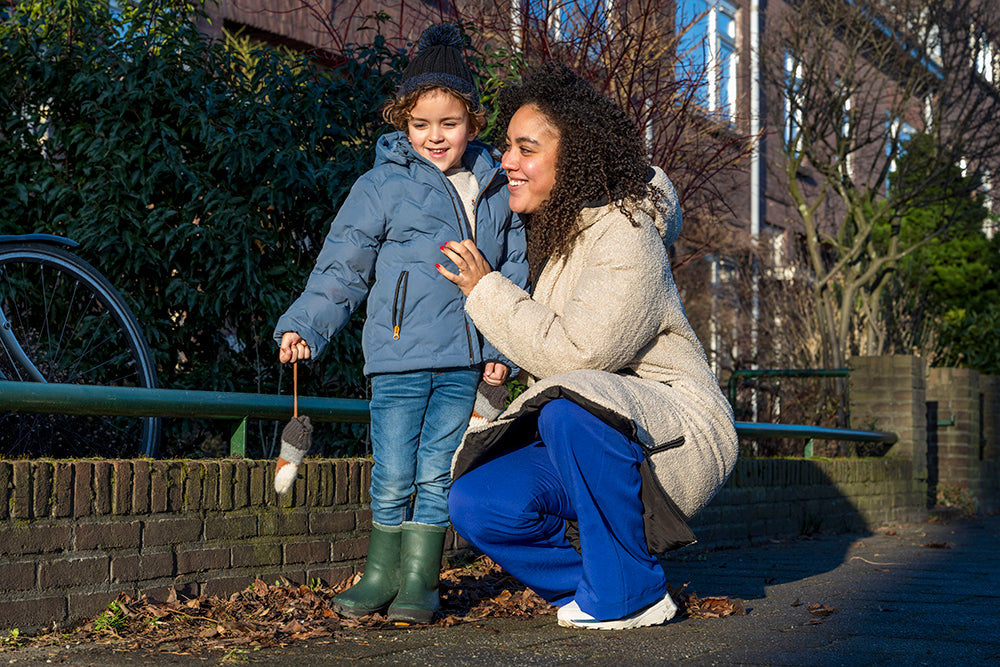You have no items in your shopping basket.
Safeguarding children (social care) eLearning courses
Safeguarding children (social care) in the UK: Ensuring a safe and supportive environment
Rose Mabiza
18-04-2024
Safeguarding children (social care) is critical to ensuring their safety, welfare, and well-being across various settings in the UK. From schools and healthcare facilities to community organisations and social services, effective safeguarding practices are essential to protecting children from abuse, neglect, and exploitation. In this blog, Rose Mabiza explores the importance of safeguarding children, key definitions, relevant legislation, and best practices to promote a culture of safety and support.
Key facts and statistics
- According to the NSPCC, over 58,000 children were identified as needing protection from abuse in the UK in 2020/21.
- Childline received over 73,000 contacts from children concerned about abuse or neglect in the same period.
- The Children's Commissioner for England reported that approximately 2.3 million children in England live in families with complex needs, including substance abuse, domestic violence, and mental health issues.

Image by Rawpixel via Envato Elements

Image by YuriArcursPeopleimages via Envato Elements
Key definitions
- Safeguarding children - The process of protecting children from abuse, neglect, and exploitation, ensuring their welfare and promoting their wellbeing.
- Child protection - Procedures and actions taken to protect children at risk of significant harm.
- Abuse - Any action or lack of action that harms or endangers the welfare of a child, including physical, emotional, sexual abuse and neglect.
Relevant legislation, regulations, and best practices
- Legislation - Key legislation includes the Children's Acts of 1989 and 2004 - Working Together to Safeguard Children (2018), and Keeping Children Safe in Education (2021).
- Regulations - The Care Quality Commission (CQC) regulates social care services to ensure compliance with safeguarding standards.
- Best practice - guidance from organisations like the Department for Education (DfE), Health and Care Professions Council (HCPC), and the British Association of Social Workers (BASW) provides best practice recommendations for safeguarding children.

Image by Image-Source via Envato Elements

Image by LightFieldStudios via Envato Elements
Protecting vulnerable youth - Safeguarding children (social care) essentials
Importance of safeguarding children
Safeguarding children (social care) is paramount to protecting vulnerable individuals from harm and ensuring their rights are upheld. Effective safeguarding practices create safe environments where children can thrive, free from fear or exploitation. By identifying risks early and intervening appropriately, safeguarding promotes the well-being of children and prevents long-term harm.
Understanding signs of abuse and neglect
Recognising signs of abuse and neglect is crucial for safeguarding children effectively. These signs may include unexplained injuries, changes in behaviour, withdrawal, fear of confident adults, or neglect of basic needs. Training and awareness programs help professionals and caregivers promptly identify and respond to these signs, ensuring children receive the support they need.
Implementing policies and procedures
Organisations must establish comprehensive safeguarding policies and procedures aligned with legislation and best practice guidelines. This includes precise reporting mechanisms, risk assessment protocols, and staff training requirements. Regular review and updates ensure policies remain current and effective in protecting children's welfare.
Building a culture of safeguarding
Promoting a culture of safeguarding within organisations is essential for creating a safe and supportive environment for children. This involves fostering open communication, promoting awareness and understanding of safeguarding issues, and encouraging a zero-tolerance approach to abuse and neglect. Training, support, and regular communication help embed safeguarding principles into organisational culture.
Recommendations
- Ensure all staff members receive appropriate safeguarding training and updates regularly.
- Establish precise reporting mechanisms and support systems for staff to raise concerns.
- Collaborate with other agencies and professionals to share information and coordinate safeguarding efforts.
- Regularly review and evaluate safeguarding policies and procedures to ensure compliance and effectiveness.

Image by seventyfourimages via Envato Elements

Image by YuriArcursPeopleimages via Envato Elements
Conclusion
Safeguarding children (social care) is a shared responsibility that requires commitment, vigilance, and collaboration from all stakeholders. By prioritising effective safeguarding practices, we can create a safer and more supportive environment for children to grow, learn, and thrive. Let's work together to ensure the safety and well-being of every child in the UK.
Today, take the first step towards effective safeguarding by enrolling in our accredited safeguarding children (social care) training courses. Equip yourself with the knowledge and skills to protect vulnerable children and make a difference in their lives. Together, we can create a safer future for all children.
Safeguarding children (social care) is critical to ensuring their safety, welfare, and well-being across various settings in the UK. From schools and healthcare facilities to community organisations and social services, effective safeguarding practices are essential to protecting children from abuse, neglect, and exploitation. In this blog, Rose Mabiza explores the importance of safeguarding children, key definitions, relevant legislation, and best practices to promote a culture of safety and support.
Key facts and statistics

Image by Rawpixel via Envato Elements
- According to the NSPCC, over 58,000 children were identified as needing protection from abuse in the UK in 2020/21.
- Childline received over 73,000 contacts from children concerned about abuse or neglect in the same period.
- The Children's Commissioner for England reported that approximately 2.3 million children in England live in families with complex needs, including substance abuse, domestic violence, and mental health issues.
Key definitions

Image by YuriArcursPeopleimages via Envato Elements
- Safeguarding children - The process of protecting children from abuse, neglect, and exploitation, ensuring their welfare and promoting their wellbeing.
- Child protection - Procedures and actions taken to protect children at risk of significant harm.
- Abuse - Any action or lack of action that harms or endangers the welfare of a child, including physical, emotional, sexual abuse and neglect.
Relevant legislation, regulations, and best practices

Image by Image-Source via Envato Elements
- Legislation - Key legislation includes the Children's Acts of 1989 and 2004 - Working Together to Safeguard Children (2018), and Keeping Children Safe in Education (2021).
- Regulations - The Care Quality Commission (CQC) regulates social care services to ensure compliance with safeguarding standards.
- Best practice - guidance from organisations like the Department for Education (DfE), Health and Care Professions Council (HCPC), and the British Association of Social Workers (BASW) provides best practice recommendations for safeguarding children.
Protecting vulnerable youth - Safeguarding children (social care) essentials

Image by LightFieldStudios via Envato Elements
Importance of safeguarding children
Safeguarding children (social care) is paramount to protecting vulnerable individuals from harm and ensuring their rights are upheld. Effective safeguarding practices create safe environments where children can thrive, free from fear or exploitation. By identifying risks early and intervening appropriately, safeguarding promotes the well-being of children and prevents long-term harm.
Understanding signs of abuse and neglect
Recognising signs of abuse and neglect is crucial for safeguarding children effectively. These signs may include unexplained injuries, changes in behaviour, withdrawal, fear of confident adults, or neglect of basic needs. Training and awareness programs help professionals and caregivers promptly identify and respond to these signs, ensuring children receive the support they need.
Implementing policies and procedures
Organisations must establish comprehensive safeguarding policies and procedures aligned with legislation and best practice guidelines. This includes precise reporting mechanisms, risk assessment protocols, and staff training requirements. Regular review and updates ensure policies remain current and effective in protecting children's welfare.
Building a culture of safeguarding
Promoting a culture of safeguarding within organisations is essential for creating a safe and supportive environment for children. This involves fostering open communication, promoting awareness and understanding of safeguarding issues, and encouraging a zero-tolerance approach to abuse and neglect. Training, support, and regular communication help embed safeguarding principles into organisational culture.
Recommendations

Image by seventyfourimages via Envato Elements
- Ensure all staff members receive appropriate safeguarding training and updates regularly.
- Establish precise reporting mechanisms and support systems for staff to raise concerns.
- Collaborate with other agencies and professionals to share information and coordinate safeguarding efforts.
- Regularly review and evaluate safeguarding policies and procedures to ensure compliance and effectiveness.
Conclusion

Image by YuriArcursPeopleimages via Envato Elements
Safeguarding children (social care) is a shared responsibility that requires commitment, vigilance, and collaboration from all stakeholders. By prioritising effective safeguarding practices, we can create a safer and more supportive environment for children to grow, learn, and thrive. Let's work together to ensure the safety and well-being of every child in the UK.
Today, take the first step towards effective safeguarding by enrolling in our accredited safeguarding children (social care) training courses. Equip yourself with the knowledge and skills to protect vulnerable children and make a difference in their lives. Together, we can create a safer future for all children.
About the author
Dr Richard Dune

With over 20 years of experience, Richard blends a rich background in NHS, the private sector, academia, and research settings. His forte lies in clinical R&D, advancing healthcare tech, workforce development and governance. His leadership ensures regulatory compliance and innovation align seamlessly.
Related blog articles
View all
Infection prevention and control (social care) eLearning courses
Contact us
Complete the form below to start your ComplyPlus trial and transform your regulatory compliance solutions.






